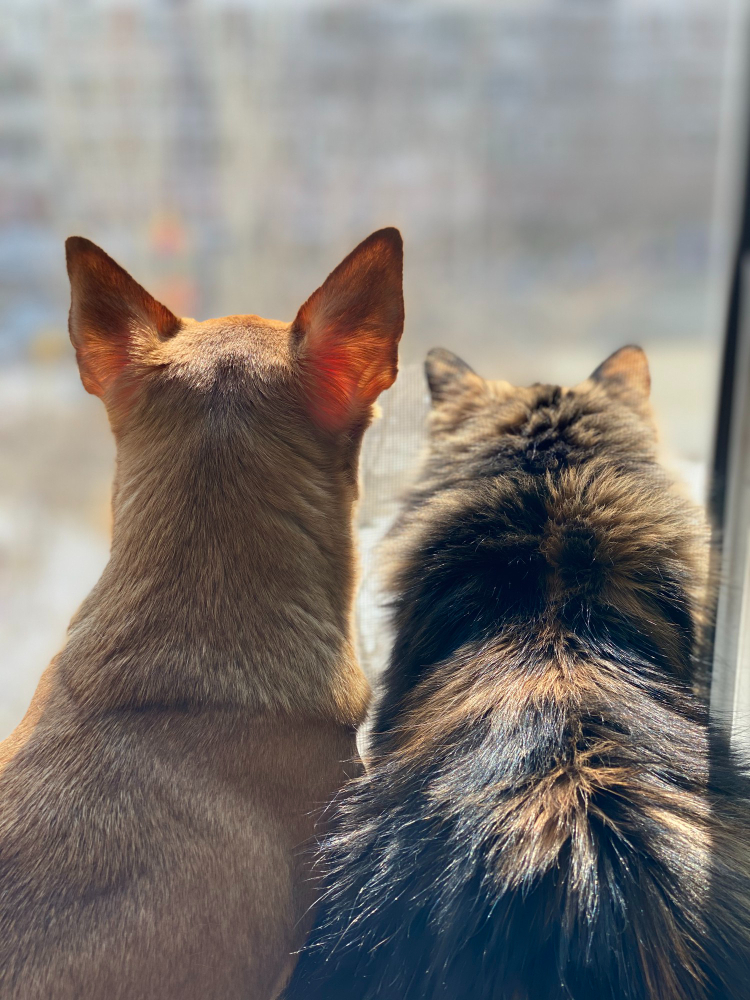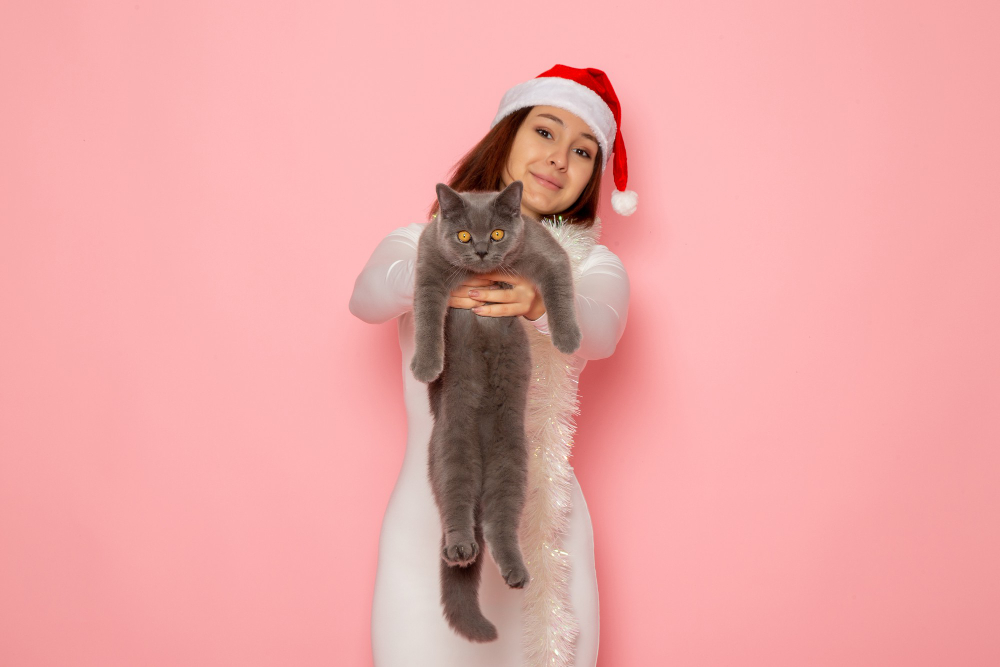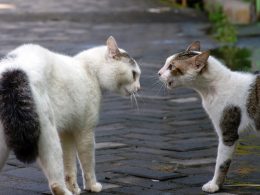Cats are beloved members of our families, but let’s face it—we’d rather not deal with the stench that accompanies their presence. Because of their animal stench, guests may recall the fragrance of your home more than anything else.
The smell of a cat might be caused by a single factor or a mixture of factors. In many cases, disagreeable scents are caused by the presence of bacteria. As a result, if you remove these bacteria, you can remove the odor.
There is no amount of potpourri or air fresheners that will fix the problem that you have. It could provide a temporary distraction, but ultimately you will need to investigate the root of the problem.
Pet scents can be eliminated by cleaning your house on a routine basis. To combat cat odors, you’ll need to perform routine cleaning duties, including cleaning, dusting, wiping, and washing fabrics.
Because cat litter is such a huge deal, we thought we’d share some helpful hints regarding the box. It might seem absurd, but if you have the room, it’s best to provide a minimum of one litter box for each cat. This is true even if you only have a few cats.
Make sure you pick a litter box that is small enough so that your cat won’t accidentally urinate outside of it and that it has a cover and a filter to help keep the scents contained. Then, try out a few different products to locate the most effective deodorant.
A few hours before vacuuming, sprinkle carpets with a deodorizing powder to remove any lingering odors. Do a steam vacuum carpet cleaning every few weeks to eliminate the lingering scents.
Ensure all your pet’s belongings, including their cage and litter box, are cleaned weekly. In addition, all your pet’s belongings, including its collar and leash, must be kept clean and in good working order.
Do Cats Always Stink?
Cat odors are uncommon, but when they occur, you’ll want to know whether the problem will go away on its own or if the cat needs to see a vet. After making a few easy changes to your cat’s food, you and your guests will soon notice the difference.
It is estimated that cats spend about one hour a day grooming themselves. As a result, we don’t think of cats as obnoxious. However, it does occur, and the following are some of the most typical causes.
It is most likely that the litter box is to fault if someone complains about the odor coming from their cat’s litter box. To minimize the presence of unpleasant odors, it is necessary to regularly sweep the area, change the litter, and scrub the litter boxes with cleaning solutions.
The sight of an intruder crossing the backyard could be enough to set an indoor cat off, even if they spray urine to indicate their territory. Spaying and neutering your animals, especially if they are still young and unaltered, can significantly reduce their territorial hostility.
Others swear by Himalayan salt lights or lighting scented oils, while others swear by technological air purifiers. But, it’s a charcoal filter placed near the kitty box that’s been garnering outstanding reviews; activated charcoal silently absorbs aromas, making it much easier to keep a pleasant ambiance.
The odors left behind by urine in carpets and upholstery can be unbearable. The remarkable thing is that many enzyme cleansers can bring old things back to life.
It’s best to avoid grocery store brands that utilize corn, soya, or other fillers, which can cause stomach irritation and more litter box accidents, especially if your cat is sensitive to them. The quality of your pet’s food will improve dramatically if you switch to a high-grade brand available at your local independent pet supply store.
Will My Apartment Stink if I Get a Cat?
Although they are naturally clean, cats have the same level of odor as any other household pet. Unfortunately, having cats in the house blinds us, pet owners, to the scents that cats leave behind.
First and foremost, find a source of the stench; often, the apparent reasons for unpleasant scents, like the litter tray, aren’t necessarily the only ones. For example, cats are notorious for hiding their antics under the bed and inside the shoe rack.
The first step in eliminating the odors left behind by your cat is to identify the places that are contributing to the problem. Use a blacklight to find ancient, hidden pee stains and patches, or use your sense of smell.
Cleaning up pee puddles and puke as soon as possible helps minimize residual odors from all species of pets, not just cats. The odor will be less likely to penetrate your sofa or carpet, and the discoloration will be less noticeable.
Even after the stain has been removed, there may still be an unpleasant smell, and air filters can help. Many air purifiers have filters developed explicitly for pet owners, making them more effective than air fresheners at masking smells.
One of the common triggers of pet odors in your cat. If your cat likes to reintroduce a variety of scents from their many outings, a bath may be the only way to get rid of these smells. However, you should not use shampoo or soap designed for humans; instead, you should use a specifically designed for cats.
Citrus plus hydrogen peroxide can be used to remove pet scents at home. However, you’ll like to test a small section of your carpet, hardwood flooring, or furniture first to ensure that it doesn’t harm the material. This mixture offers a safe and effective alternative in place of toxic chemical cleaners.
Do Cats Stink More Than Dogs?
Dogs have a lot stronger natural scent than cats, which is why they are more popular pets. Dogs’ various sources of body odor all add up to a more powerful stink than cats’ one natural source of body odor, the modest quantity of sebum they produce.
It’s important to note that canine and feline pets both lack body sweat glands, which implies that perspiration doesn’t play a significant role in a dog’s unpleasant odor. However, their hair follicles produce a small amount of sweat, contributing to each dog’s distinctive odor.
Additionally, the ears and butts of dogs are two additional sources of foul scents. Therefore, there are glands in these locations. Dogs have two types of glands: those in their ears and those around their anus.
In addition, dogs create oils to keep their coat and skin in good condition, which also has a distinct aroma. The makeup of these oils may be like the sebum created by cats, but humans are much more aware and repelled by the scent of dog sebum than cat sebum.
A secondary reason cats have a more pleasant natural scent than dogs is that their bodily scents are much milder. This is because bacteria in the epidermis break down the sweat, which does not lend itself to smell, to produce a foul odor.
In contrast to humans and other animals, cats have a smaller number of sweat glands, which are concentrated in their paws, along with a few on their whiskers, nose, and anus. As a result, cats perspire far below other animals and have a much weaker body odor due to their lack of sweat glands below their fur but only in hairless places.
However, cats secrete sebum, a vital oily fluid that keeps their skin and coats hydrated and silky. A cat’s self-grooming ensures that this doesn’t last long enough to become smelly, but it can still have a foul odor if germs begin to break it down.
How Do You Own a Cat Without it Smelling?
Cats may have foul scents for a variety of reasons. It is possible to identify the source of the stench if you know where it is coming from.
- The most prevalent cause of halitosis in cats is dental disease, which is caused by germs in plaque and tartar. Buildup can lead to gingivitis, which eventually causes tooth loss because of gingivitis.
- You may have an issue with your cat’s skin and hair if the odor seems to come from all around the body. When your cat is very filthy, consider bathing him.
- Cats with skin diseases may have a foul odor all over their body. After caressing a cat with such a severe skin condition, you may detect a greasy, stinky layer on your hands; the stench is usually associated with fungal or bacterial overgrowth.
- Cats, like people and other animals, are subject to the natural phenomenon of flatulence. There may be an issue with your cat’s digestive system if you notice a foul odor or if it gets diarrhea or constipation frequently.
- An excess of yeast, germs, or ear mites can cause an ear infection. So, in addition to the scratching and shaking of the head, you may have noticed that the cat’s ears stink.
- The ammonia-like smell of cat pee might get even more vital if there is an issue with the cat. In addition, urinary system infections can cause urine to smell particularly noxious.
- Please take into consideration that cats are masters at disguising their ailments. It may be too late if you recognize any disease symptoms, so contact your veterinarian at the first symptom of illness or an odor that won’t go away.














